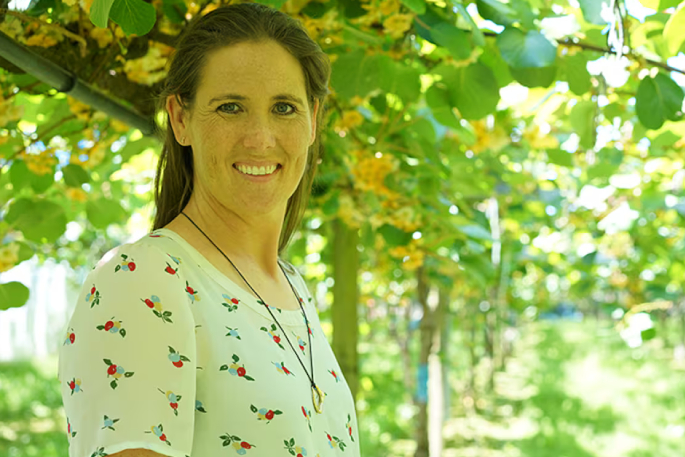Growers are being asked to have their say in the upcoming levy referendum to enable Horticulture New Zealand (HortNZ) to continue its work for the sector.
A levy proposal document and voting papers have been sent to all eligible growers and a renewed levy would apply for six years, from March 2025.
The organisation proposes that the levy rate remains at the maximum of 15 cents per $100 of sales.
Avocado and kiwifruit grower Liarna White is keen for others to back the continuation of the levy, which is paid by all commercial growers on the sale of New Zealand-grown fruit and vegetables.
Liarna is passionate about the horticulture industry in New Zealand. “I always wanted to get into this industry to be part of producing healthy, fresh food in a sustainable way,” she says.
Graduating with a degree in applied science majoring in horticulture from Massey University in 2008, Liarna has worked in orchard management, post-harvest, and project management within the kiwifruit industry.
Over the last 10 years, Liarna and her husband John, with their three children, have built up a successful family business, growing avocado and kiwifruit with orchards in the Bay of Plenty and Poverty Bay.
Along with her scientific and technical understanding, Liarna brings a future-focused approach to managing the business and to the wider local and national grower community.
“Our industry is diverse and has amazing strengths that come from the experience, skills, and knowledge that the grower community holds.
“But we are all facing ongoing challenges such as the big one of climate change and barriers around certainty of access to quality land and water into the future, as well as labour and compliance challenges.”
The couple are scrupulous about water and land management with initiatives such as using precision irrigation to ensure there is little or no water wasted, avoiding weed spraying, and mulching and composting to build up the soil.
“We are always looking at new ways of doing things to improve sustainability but as growers and producers, we don’t have time to tackle the bigger issues.
Therefore, Liarna says it was important to have HorticultureNZ as a unified voice for the sector, working with growers to break down barriers, helping national and local officials understand the impact of their policies, and coming up with solutions.
“For instance, with a lot of regional council policies around land and water use, HortNZ has had a major impact in helping safeguard productive land so it can be used in the future.
“Likewise with the Recognised Seasonal Employers scheme, which has been brilliant for supporting the needs of both food producers in New Zealand and seasonal employees.”
Horticulture NZ also supported Liarna in establishing Women in Horticulture Tairāwhiti to create a supportive local community.
“Ultimately, HortNZ does so much to support the industry’s sustainability with programmes like A Lighter Touch bringing valuable research to growers around the regions, training and education initiatives.”
Liarna says there were also the Young Grower Awards, showcasing talent and career opportunities in the industry, and networking events.
She says she was a “strong believer” in Horticulture NZ’s mission.
“We need HortNZ to be out there advocating for and supporting our needs.
“I urge growers to get out there and vote - the future of the horticulture industry depends on it.”
Growers can vote online or by postal vote by June 14.



0 comments
Leave a Comment
You must be logged in to make a comment.